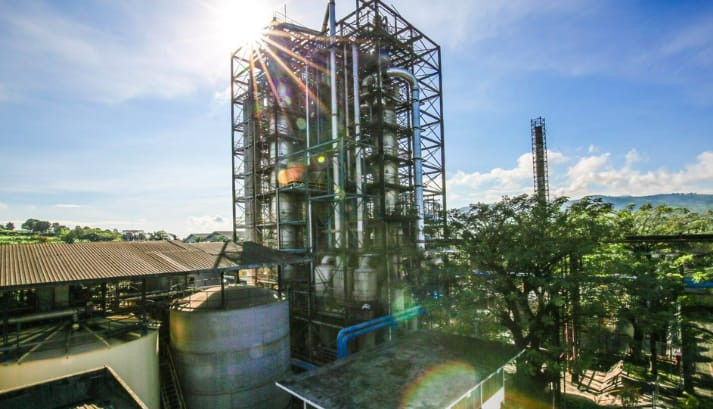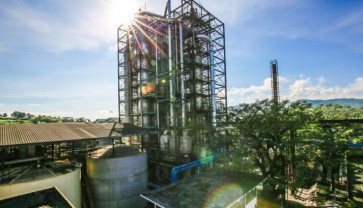Popular Reads
Top Results
Can't find what you're looking for?
View all search resultsPopular Reads
Top Results
Can't find what you're looking for?
View all search resultsIndonesia’s biofuel plan in limbo as problems in sugarcane production mount
The government’s biogasoline policy, intended to run parallel with a biodiesel policy in slashing oil imports to Southeast Asia’s largest fuel market, has failed to meet its goal.
Change text size
Gift Premium Articles
to Anyone
I
ndonesia's plan to roll out sugarcane-based biogasoline will miss another deadline this year as upstream problems in the country’s sugarcane heartland remain unsolved.
The Energy and Mineral Resources Ministry issued five years ago a regulation mandating the nationwide use of 10 percent bioethanol-mixed gasoline (E10) starting this year, an increase from 2 percent in 2015, yet the target has still not been achieved.
The biogasoline will be made from molasses, a byproduct of sugar production. However, a sugarcane farmers association in East Java, a province that accounts for half of domestic production, told The Jakarta Post that crop productivity had actually been falling over the past four years.
“For bioethanol, the challenge is economic feasibility. [High] molasses prices and [low] sugarcane productivity makes ethanol’s main raw ingredient quite expensive,” said Fabby Tumiwa of energy watchdog Institute for Essential Services Reform (IESR) on Monday (30/3).
“Right now, even the facilities to produce fuel-grade ethanol are insufficient.”
He estimated that an E10 policy would require up to 4.5 million kiloliters (kL) of fuel-grade bioethanol each year. Indonesia’s existing production capacity, which comes from two East Java-based companies, covers less than 3 percent of that estimate.
The government’s biogasoline policy is intended to run parallel with a biodiesel policy in slashing oil imports to Southeast Asia’s largest fuel market. Indonesia consumed 79.56 million kiloliters (kL) of fuel last year, around half of which was gasoline and 40 percent of which was diesel.


















